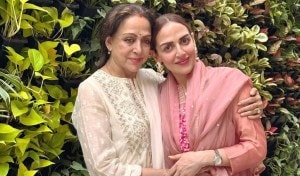Row over President’s R-Day speech — It was Gandhi’s idea, not Ayub Khan’s
NEW DELHI, JAN 29: Who exactly inspired the Constitution Review Commission to float the idea of indirect elections? Former Pakistani dicta...

NEW DELHI, JAN 29: Who exactly inspired the Constitution Review Commission to float the idea of indirect elections? Former Pakistani dictator Ayub Khan, as insinuated by President K.R. Narayanan on the eve of the Republic Day? Or Mahatma Gandhi, as claimed by the Commission in one of its consultation papers released earlier this month?
Dr Subhash Kashyap, the member in charge of the drafting of the paper concerned, told The Indian Express that the idea of having indirect elections to the Lok Sabha and legislative assemblies was “rightly attributed” to The Father of The Nation.
Offered as one of the three broad approaches to reform the electoral law, the Gandhian model of indirect elections, Kashyap said, was drawn from a book called Gandhian Constitution for Free India published way back in 1946. Though its author was one Prof Shriman Narayan Agarwal, the book carried a foreword by Gandhi himself “on the train to Calcutta on 30th November, 1945”.
This little known book was brought to the attention of the Commission by an NGO called People First, which has been campaigning for replacing the existing institutions with Gandhi’s concepts of democracy.
As many as five out of 14 chapters in the book are devoted to spelling out Gandhi’s bottom-up model in which direct elections are limited to the lowest rung, namely, the village or ward panchayat, which is envisaged to have “maximum local autonomy”. Since the higher bodies, namely, the taluka, district, province and all India panchayats, will be “mainly advisory and coordinative, indirect election would be the most suitable method”.
The elections will be “indirect” in the sense that the president of each village or ward panchayat will be a member of the taluka panchayat. The president of each taluka panchayat will be a member of the district panchayat. The president of each district panchayat will be a member of the provincial panchayat. The president of each provincial panchayat will be a member of the all-India panchayat.
In his foreword to the book, Gandhi wrote: “Perhaps the expression Gandhian Constitution is not a fitting title for Principal Agarwal’s pages. It may be acceptable as a convenient and compact title. The framework is really Principal Agarwal’s, based on his study of my writings. He has been interpreting them for a number of years. And as he is anxious not to misinterpret them in any way, he would publish nothing without my seeing it. All therefore I am able to say is that the book contains ample evidence of the care bestowed upon it by the author to make it as accurate as he could. There is nothing in it which has jarred on me as inconsistent with what I would like to stand for.
“The author was good enough to make such alterations as I thought were necessary. I regard Principal Agarwal’s to be a thoughtful contribution to the many attempts at presenting India with constitutions. The merit of his attempt consists in the fact that he has done what for want of time I have failed to do,” Gandhiji wrote.
The President in his Republic Day address had said: “It would be an irony of history if we invoke today in the name of Mahatma Gandhi, the father of the nation, the shades of the political ideas of field marshal Ayub Khan, the father of the military rule in Pakistan.”
Photos



- 01
- 02
- 03
- 04
- 05




























